|
Strolling along the port of Valdez. After a week of traveling solo, I was looking forward to seeing someone I knew. I met Sheri on my Kilimanjaro trek in 2018 and was impressed and inspired by her faith and fortitude on the mountain. When you travel with someone and do an effort like Kilimanjaro, you quickly see past any veneers. Sleep-deprived, cold, and feeling the effects of altitude sickness, you see what people are made of, and Sheri was the real deal. When I told her I was visiting Alaska, she graciously invited me to stay in Valdez with her and her husband. Valdez (properly pronounced "Valdeez") is a small town of around 4,000 permanent residents. It felt fitting to be ending my trip there. Valdez is the terminus of the 800-mile Alaskan pipeline, which I followed for much of my trip. Valdez is unlike any place I've been to. Nestled near the head of a deep fjord in Prince William Sound, the town is walled by glacier-carved mountains and sea. The micro-climate in Valdez produces an astounding 300 inches of snow each year, but with more moderate temperatures than other parts of Alaska. It was amazing to me that early prospectors found the place, let alone built a town there. Valdez has experienced hardships. In 1964, the community was devastated by a massive 9.2 earthquake that lasted a horrifying-to-think-about four-and-a-half minutes and claimed the lives of 32 people when an underwater landslide collapsed the docks in the harbor. After the earthquake, they moved the town 4 miles to the north to build on more solid bedrock. Then, of course, there was the oil spill in 1989 that occurred 25 miles to the south of the port of Valdez, which was my only association with Valdez until my visit. I no longer think of crude oil when I hear the word Valdez. I think of grandiose natural beauty. The town of Valdez quaintly nestled in by mountains and clouds.
On the second evening, Sheri and Todd treated me to dinner theater. The show was an original musical comedy about the history of Valdez. The four-course meal was superb, and the show—surprisingly bawdy—was quite charming. After the show, the venue hosted an open mic. Guys with long scraggly beards on a reprieve from working the fishing boats played their guitars and sang their songs. There was nothing pretentious about it, which made the whole evening enjoyable. No one plays an open mic in Valdez, AK, in hopes that they'll get "discovered." They played because they love music. I was packing up the car to leave on the morning of July 5th, which happened to be my birthday, when Sheri bounced out of the house. "Do you think you can stick around for another hour or two?" I looked at her inquisitively. "I suppose so." "Todd and I want to give you a birthday present. We want to take you on a glacier helicopter tour.” I couldn't believe it. Really?! I accepted the offer. Sheri and I drove to the airport, where the small twin-blade helicopter awaited us. The flight was a little over an hour long, and I enjoyed every minute of it. I sat next to the pilot on our flight out and gawked at the views of the quaint little town and surrounding lush green mountains. Our pilot pointed out black bears and mountain goats along our path to the Chute Glacier. He landed the copter on the glacier, and we spent about 20 minutes exploring the living ice. The whole experience was quite astounding and was one of the best birthday gifts I have ever received. The pilot and I chat about the characters of blue water. Driving from Valdez to Anchorage to catch my flight home, I had hours to reflect on my time in Alaska. I couldn't stay any longer. I mean, I could, but the experiences of the last 10 days filled me to the point of overflow. I needed to leave to process and reflect. I needed to take the sensory input and let it transform into memory and integrate meaningfully into the larger whole of my life experiences. That sounds weird as I write that, but perhaps you'll understand what I mean. This fullness I speak of is a profound sense of satisfaction and wholeness that arises from deep within. It is Boundless Love, and I believe it to be the rarest kind of love. When we think of love, we mostly feel and express it in terms of subjects and objects. I love _____ . And we long to be the object of someone's love. We search for it. We'll settle for it in unhealthy teaspoon portions because our hunger for it is so great. This kind of love can be powerful, but it is nonetheless bounded and will be accompanied by anxiety, fear, and longing. How much of our energy is spent worrying about the things we love? Bounded love will at times feel like bliss, betrayal, hope, lunacy, intimacy, and loneliness. This is because objects like people can fill the heart but not the soul. The soul can only be filled by the ineffableness of Boundless Love.
Our helicopter rises above the clouds in the mountains near Valdez, Alaska.
2 Comments
Mountains accompany nearly every view along the Denali Highway. I had been warned about Denali: "You may not even see the mountain." The warning was not so much a harbinger of foreboding as it was a governor for my expectations. Alaskan weather, often overcast and rainy, doesn't always cooperate with one's itinerary. When I arrived at Denali Park, it seemed that the forewarning would be correct. It was raining. A sigh welled up in my gut. The plan was to camp for two nights, but the idea of camping in the rain filled me with dread. "This is why I am here," I told myself. "It's all part of the adventure, right?" My apprehension lifted when I checked in for a campsite. "We're full tonight," the ranger said. "But there are sites available tomorrow." I looked out the window at the rain assaulting the windows and sighed with relief: "No problem. I'll take tomorrow." I found a room for the night not far from the park entrance that turned out to be just what I needed. I hadn't showered in a couple of days, and my hiking boots were still soaked from biking through foot-deep puddles up in Coldfoot. Also, sleeping in the back of the Jeep, though convenient, was something my back didn't want to do too often. The hotel gave me a chance to clean up, dry out, and catch up on sleep.
After my morning hike, I made my way to the campsite. With my tent pitched and logs on the fire, I settled in. I read the only book I'd brought with me, The Solace of Fierce Landscapes by Belden Lane. “Wild places have always tantalized the human imagination, captivating even as they unnerve…” My plan was to leave Denali in the morning, but a part of me felt that I needed more time there. The beauty was so generous that I didn't want to leave. I'd driven alongside the Nenana River the previous day, and this had given me the urge to get on the water, so I found a rafting tour - an 11 mile trip down the river with class 3 and 4 rapids - and booked it for the next day. When I arrived for my rafting excursion, they zipped me into a dry suit, explaining that the glacier water that fed the river was a very chilly 36 degrees. Without the suit you would become hypothermic within minutes if you ended up in the water, but with the suit, you could survive for hours.
I grabbed dinner at the Prospectors Pizzeria and then hit the road again. It was well into the evening hours, but because of the abundant daylight, there was no pressure to make good time or reach a certain destination by nightfall. I headed south from the Denali Park entrance and then turned east onto the Denali Highway. Like the Dalton Highway in northern Alaska, the word "highway" is used loosely. The Denali Highway is an unpaved route that cuts 135 miles across central Alaska, and let me tell you, it is spectacular. There are many beautiful and scenic routes across the US, but none compare to the experience of driving the Denali Highway. The click-clack-click of gravel hitting the vehicle's undercarriage, the bumps and potholes, and the unevenness of the path necessitate a slowdown. Then, there is the view. "This is Alaska!" I thought to myself. Shrubbery and boreal trees marked the rolling green land that stretched for miles north to the snow-capped Alaska Range. Beneath the peaks, rivers and streams branch like veins of life. Anticipation and its more confident cousin, expectation, filled me. It felt as if at any moment, I might round a bend and see something extraordinary. Humankind, though present, felt dwarfed and insignificant. Here, you are a piece of the Greater, and there is no mistaking that. Coming from Southern California, where the popular camping and hiking locations require permits and reservations sometimes far in advance, I had a hard time wrapping my mind around the accessibility of the land. Along the highway are numerous places to pull off the road. You can camp, fish, and hunt pretty much anywhere (with some restrictions on hunting). The only caveat is that you're on your own. There are few services to assist you. You must act in cooperation with the land if you are to avoid disaster. A view to the north along the Denali Highway. I stopped for the night at the Clearwater Mountain Lodge at mile 80, close to the highway's midway mark. It's a family-run bed and breakfast and one of the few spots along the road with services. I stepped into the Sluice Box Bar, a trailer-sized shack and the most middle-of-nowhere bar I've ever been to, and took a seat. My company that evening was two friends in their 20s from Anchorage who met in the army, the bartender who was a recent college grad from Indiana, and the lodge owner's son. I don't recall what we talked about, but it filled a good couple of hours. At one point, a burly man with a thick beard came in and ordered a Heineken. He told me he was one of the stars of an upcoming NBC/USA Network wilderness survival show. They were about to start production on the Alaska episode. I wished him good luck. The walls of the Sluice Box Bar were covered with dollar bills. I asked the bartender what that was about. "It's an old tradition that dates back to the early prospectors," he told me. When a new prospector would arrive in town with eyes filled with dreams of gold, he would leave a dollar with the bartender. That way, if (or when) the man blew his life savings searching for treasure, he still had a dollar left to his name. He could stumble back to the bar and commiserate his misfortunes over one last drink. I pulled a dollar bill from my wallet, signed it, and stapled it to the wall. Now, I know if all else fails and I go for broke, there is a place in the middle of Alaska that still has a dollar with my name on it, and they are saving it for me. The gas station at the Clearwater Mountain Lodge on the Denali Highway. I slept in the back of the Jeep that night at their designated campground and set out early the next morning. It was another gorgeous blue-sky day. As the Jeep rumbled down the road, I was once again gripped by the land. "Behold," I thought to myself. "Behold? What a funny word." It's a word I would never use in daily life, except maybe around the holidays if I were reciting the Christmas story, but here, it felt right; its utterance is necessary to respond to the moment. Behold. How often do we hold a moment - sit with it or stand with it - ignoring all distraction, and simply allow ourselves to succumb to its grip? I realize there was a reason why the word behold is not part of my vocabulary. It's because most days, I don't stop long enough to let a moment grip me. I reach for the distraction; I seek it. There are occasions of "that's cool," then it's on to the next thing. On the Denali Highway, I rediscovered the meaning of the word "behold." It is a sense of falling into deepness. "Deep calls unto deep," the Psalmist says (42:8). So much of life is spent splashing in the shallows of trivialness when, all the while, the deep beckons us. There is more meaning and aliveness to be felt and experienced, but we must wade away from the familiar shallow edges to get there. We must learn what it means to behold. A morning drive along the Denali Highway provided stunning views. It was sometime around noon when the wheels of my Jeep found pavement again. With just a few days left in my Alaskan journey, I continued south toward Valdez, a small town with a rich history situated precariously between the Chugach mountains and Prince Williams Sound.
The Dalton Highway stretches toward the Brooks Range in northern Alaska The first sign that I was crossing a threshold into a new frontier was the sudden reappearance of light. I was in Seattle. The sun had set, and the sky was that dark navy blue fading to a nighttime black. It was shortly after 10 pm when my flight departed for Fairbanks, Alaska. As the plane reached its cruising altitude, hugging the coastline heading northwest, the sun did the strangest thing; it reversed direction and rose again. You can imagine my disorientation. I was leaving the land of day and night and traveling to a place of perpetual light. I realized that I would need to reorient my vision and let my body loosen its reliance on circadian rhythms. I arrived in Fairbanks around 1 am local time. Sunshine and a "Welcome to Alaska" sign greeted me when I stepped off the plane. I stayed at a hotel near the airport with the curtains tightly drawn. The following day I grabbed a cup of coffee and walked down the shoulder of the highway about a mile to pick up my rental car from Alaska 4x4. An orange Jeep Wrangler awaited me when I arrived. We became friends immediately. She proved to be a good companion for the journey. Though she didn't have much to say, she was dependable and a good listener. I left Fairbanks after stocking up on groceries and topping off the gas tank. My destination was Wiseman, Alaska, population 14, about 270 miles north of Fairbanks (approximately 2,000 miles north of Seattle). To get there, I had to take the Dalton Highway, the haul road made infamous by the TV show Ice Road Truckers. Built in the 1970s, the road provided access for the construction of the Alaskan pipeline, which stretched from Prudhoe Bay on the Arctic Ocean to the port in Valdez, near the Gulf of Alaska. There were paved sections, but the majority of the road was compacted dirt. Fortunately for me, I would not have to traverse the path covered in snow or ice. A lonely tractor-trailer leaves a trail of dust in its path as it rolls up the Dalton Highway. 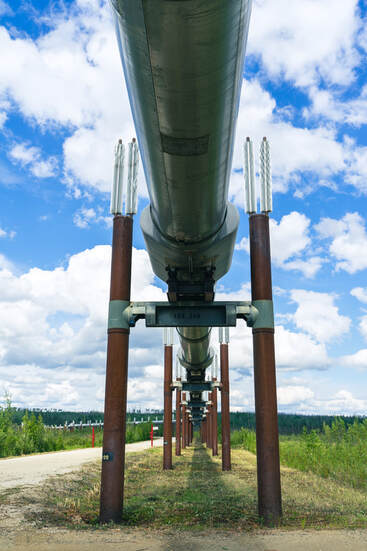 There was tremendous freedom that came when I turned off the GPS. No voice telling me where to go or when I'd get there. No expectation for arrival. No heads-up on the traffic ahead. The only certainty was my direction: north. Which way the road will bend, I do not know. The peaks and vales between here and there, I will discover when I'm there. How long will it take? Who cares. North. That is the destination, and that was enough. I stopped along the way to stretch my legs and snap a few pictures. I spent some time at the welcome center — a small cabin — near the Yukon River. The host seemed excited to have a visitor to talk to. She gave me updates on the latest wildlife spotted in the area. "Three moose passed here just yesterday." I walked down to the swift-flowing Yukon River and tried to imagine what it looked like 150 years ago when floods of prospectors used the river as a highway to the north. I arrived at Coldfoot Camp in the late evening, though you couldn't really tell what time it was by the sun's orientation. Coldfoot is a trucker's stop and base camp to all things in the arctic North. It is one of the only places on the Dalton Highway where you can get gas and a hot meal. A short gravel runway allowed bush planes to come and go. I spent two nights in a cabin in Wiseman, fifteen miles north of Coldfoot. During the day, I explored the area. I pack-rafted down Koyukuk River and biked local trails, all with an eye over my shoulder and my ears perked for any signs of bears. One morning, I drove 100 miles north through the Brook Range to see the expansive tundra. The permafrost and lack of winter sunshine prevent trees from growing. But during the summer, when light is plentiful, the tundra transforms into a blanket of green grass and wildflowers. Except for the cool temperatures, it doesn't look "Arctic" at all. Rather, it is lush with plant life and birds that migrate from as far away as New Zealand. As the breeze brushed my face, I swear I could hear the voice of David Attenborough say, "Summer in the Arctic Circle is the season of transformation . . . ." Closed in 1956, the Wiseman post office still stands today. To say the mosquitos were thick would be an understatement. I wore a jacket, pants, and a buff around my neck, yet this did not deter the vampire insects from seeking my blood. My only exposed skin was on my hands and bald head. It made for a poor buffet, but they didn't seem to care. The numerous bites on my head inflamed my skin, further agitated by the mesh trucker hat I wore. For several days, it looked like my scalp had some sort of skin disease. My pack raft guide, Dan, was a young man from Western Massachusetts. After googling "remote arctic work," he found Coldfoot and took a job as a guide — Northern Light viewing being the draw in the winter. He appreciates the remoteness and the small, tight-knit community that he found: "It suits me." He lives a simple existence in a small four-walled tent during the summer. His pack of dogs helps him enjoy and navigate the long winters. As I swiped at the mosquitoes buzzing around my face, he said, "Yeah, this place will bite you." It's the mosquitoes in the summer, frigid air in the winter. "It's the price you pay to be here." I was reminded that beauty comes at a cost. There is a sacrifice you must make to experience a place like this. I wondered how many leave and only remember the bite. Dan, my guide, prepares the rafts for our trip down the Koyukuk River. On my last day in the Brooks Range, I took a flight tour over the Gates of the Arctic National Park and Preserve. This park is the least visited (for obvious reasons) national park in the US. With no roads or trails into its vast wilderness, the only way to access it is by air or to bushwhack by foot. The flight wasn't great if I'm honest. The skies were overcast and the air choppy. The plane was an old 10-seat turboprop that fed my claustrophobic anxiety. When I wasn't wiping my palm sweat onto my jeans, I tried to take some pictures. After we landed safely and I confirmed that I was indeed still alive, I was glad I did it. It gave me an appreciation for the expansiveness of this "last frontier." I walked away pondering: If beauty exists in the wilderness and no one is there to witness it, is it still beautiful? "Indeed," I thought to myself. "For beauty is beauty with or without the eye of a beholder." A look down into Gates of the Arctic National Park. One of the few clear pictures I was able to capture. The plane tour ended at around 10:30 p.m. I didn't have a place to stay that night, so I decided to get a head start on my drive for the next day. I left Coldfoot at 11 p.m. and headed south on the Dalton Highway. I was tired, but the sunlight kept me awake. I listened to the Chronicles of Narnia on audiobook. As the Jeep rumbled down the dirt road, I met almost no traffic for 100+ miles. I had the expanse from horizon to horizon all to myself.
There is that moment during a sunrise when the light first makes its appearance, and the sky turns a purple/violet/pink. It lasts for maybe 10 minutes; then, the emerging sunlight replaces the royal colors. That's what it was like driving down the Dalton that night, but it didn't last ten minutes; it lasted for hours. The combination of fatigue, solitude, and the light of the enchanted sky created this perfect moment of blissful gratitude. A sense of love welled up inside me. For whom or what, I could not say. Just love. I pulled off at a campground at around 1:30 a.m. I was too tired to set up my tent, and then, of course, there was the thought of hungry bears. So, I crawled into the back of the Jeep and slept for the rest of the night. In the morning, I rolled out the back of the vehicle, made a cup of coffee with my Jetboil, and turned my eyes to the south toward Denali National Park. |
AuthorA WRITER AND TRAVELER KEEPING THE FAITH IN LOS ANGELES Subjects
All
Archives
August 2022
© 2022
|
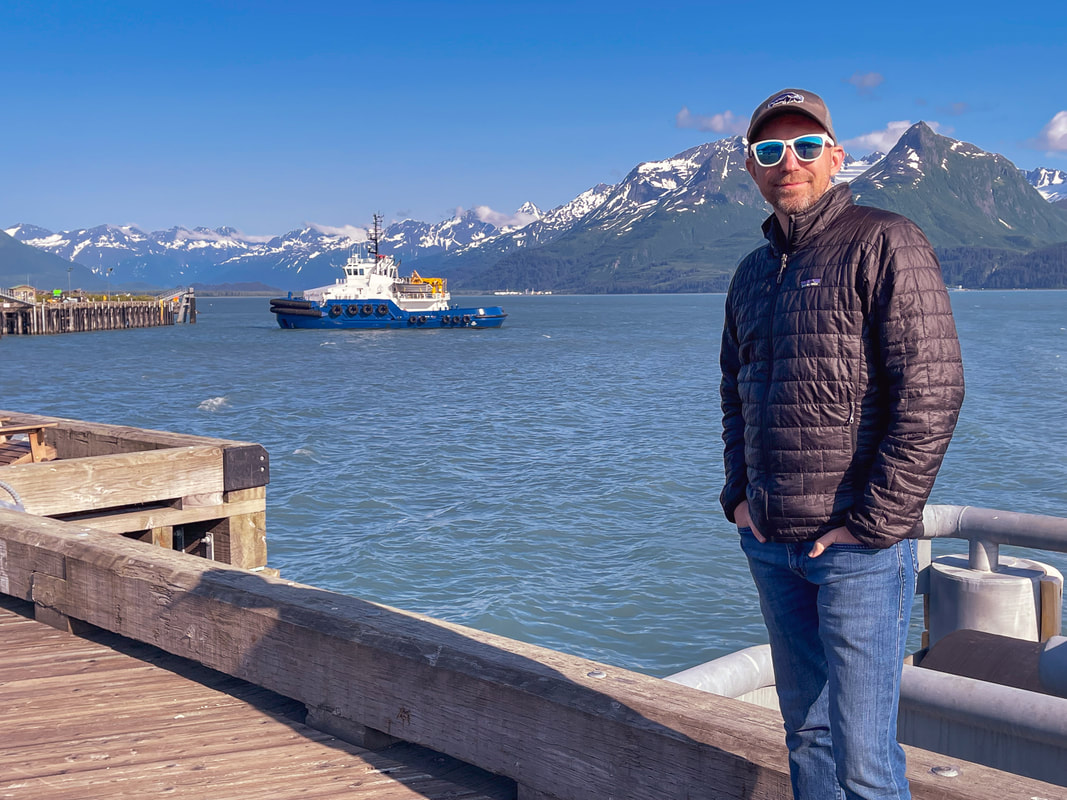
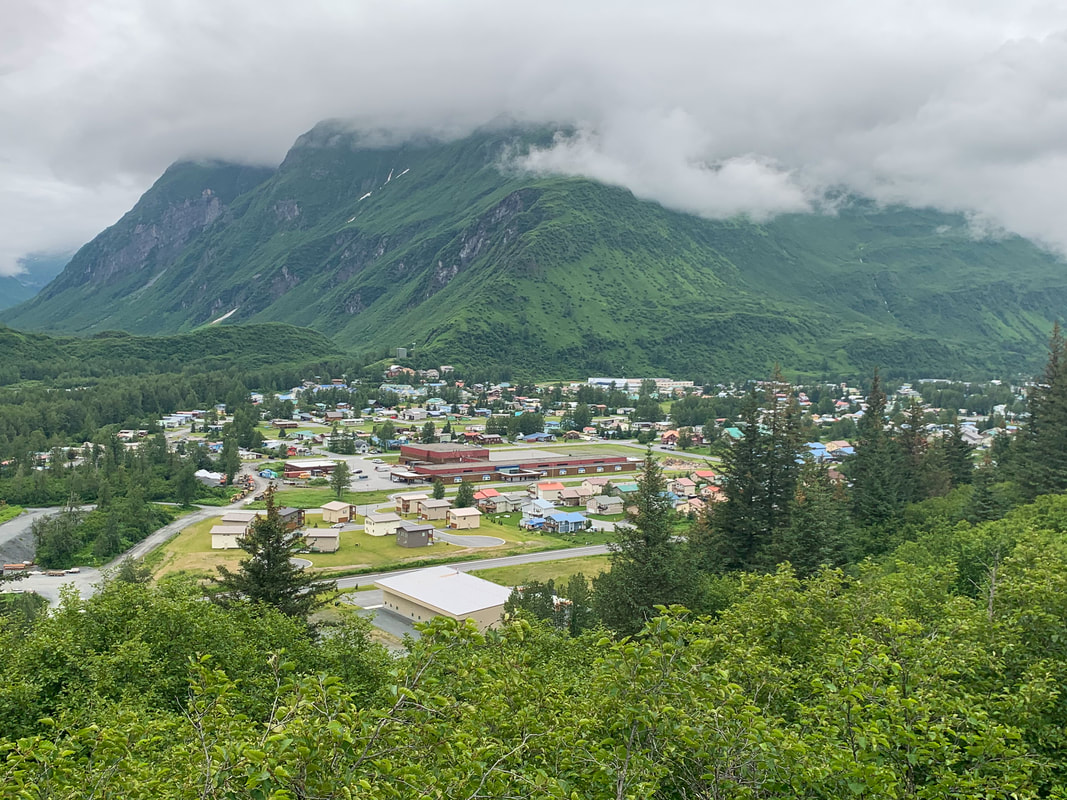
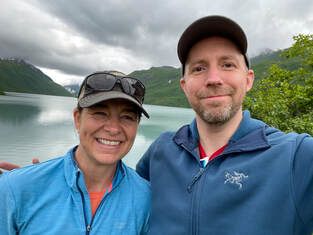
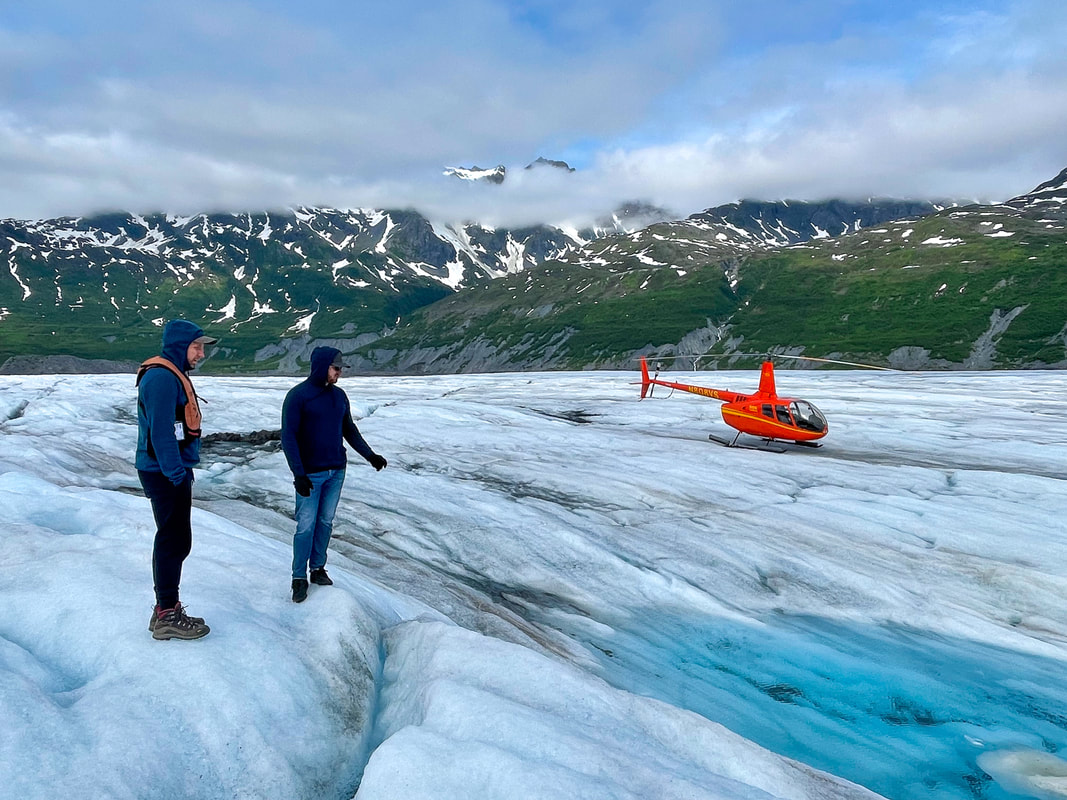
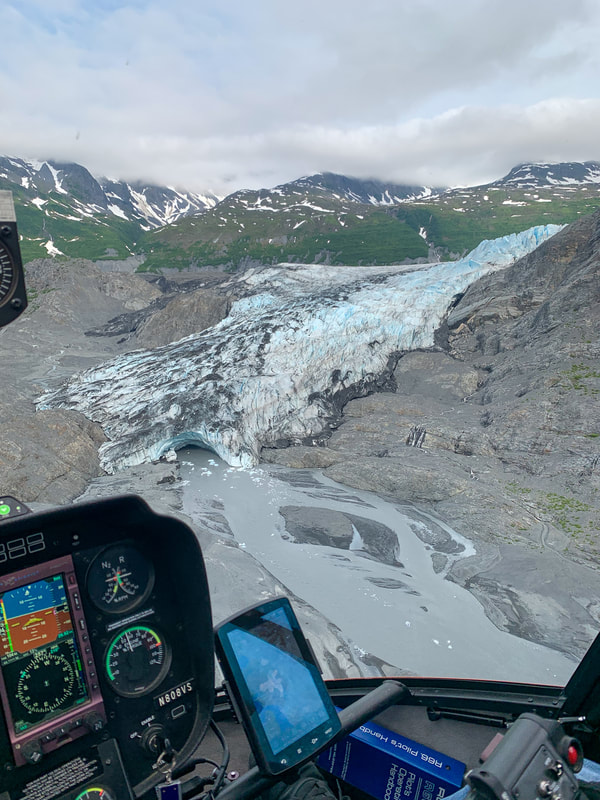
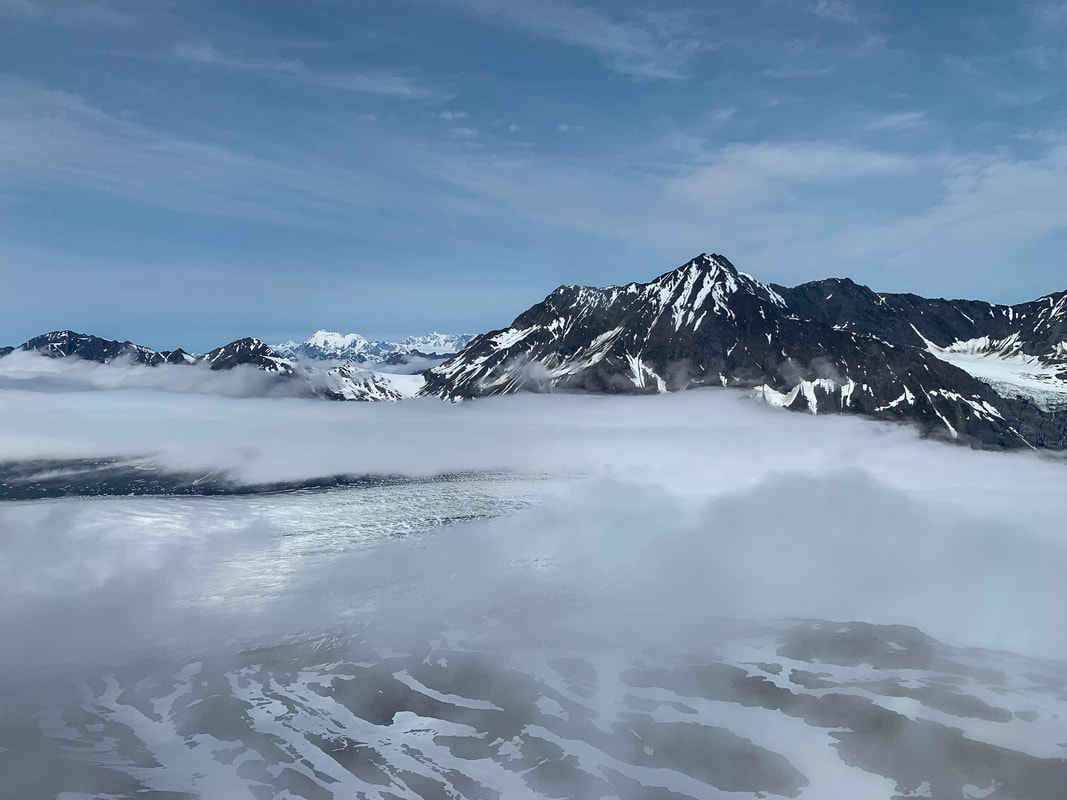
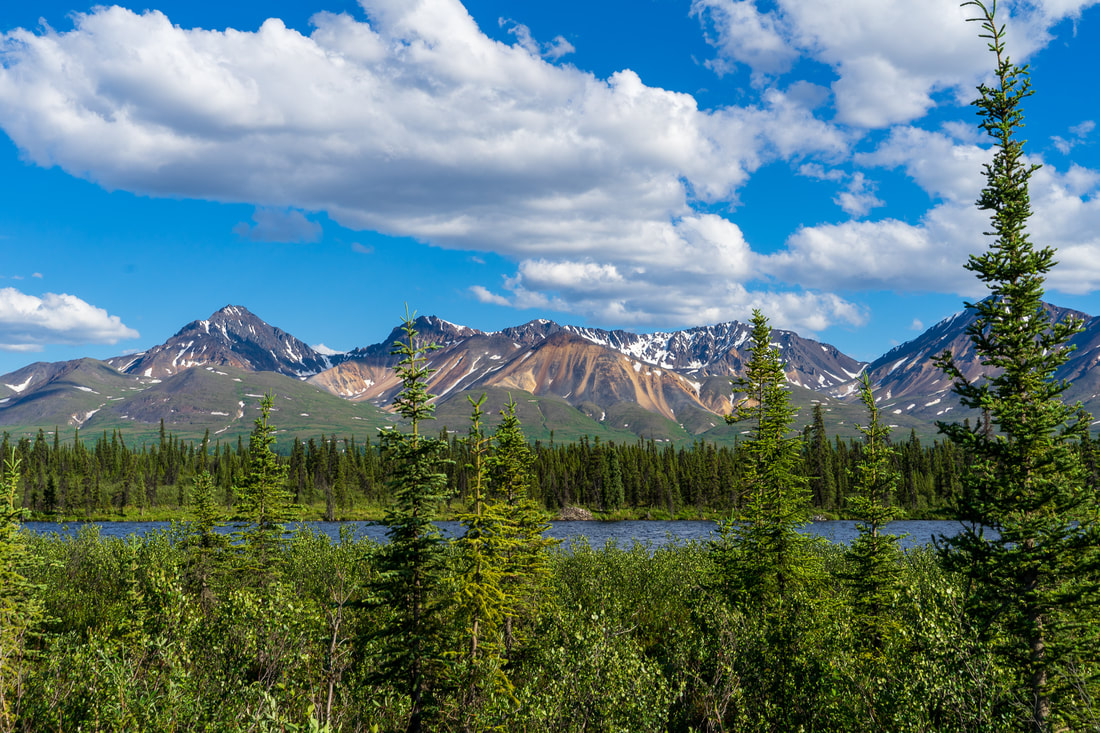
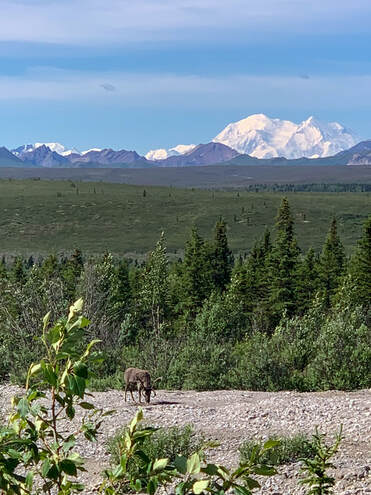
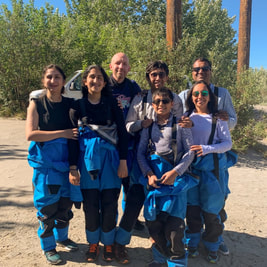
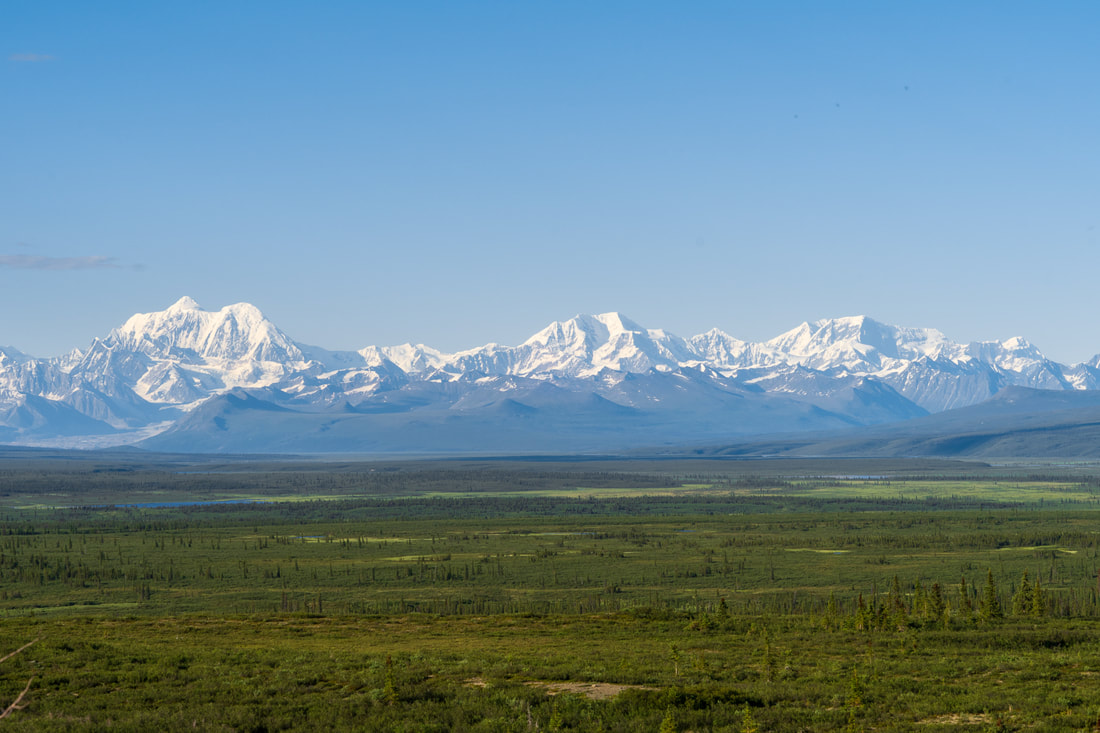
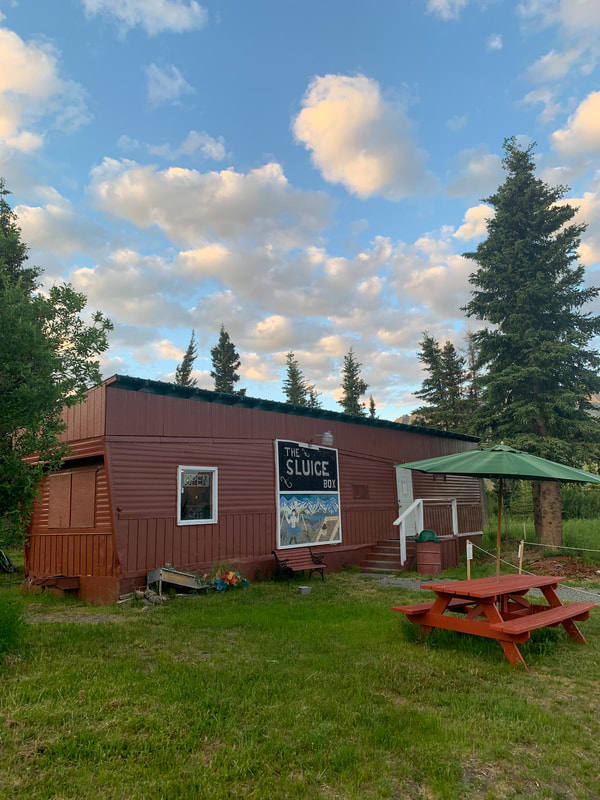
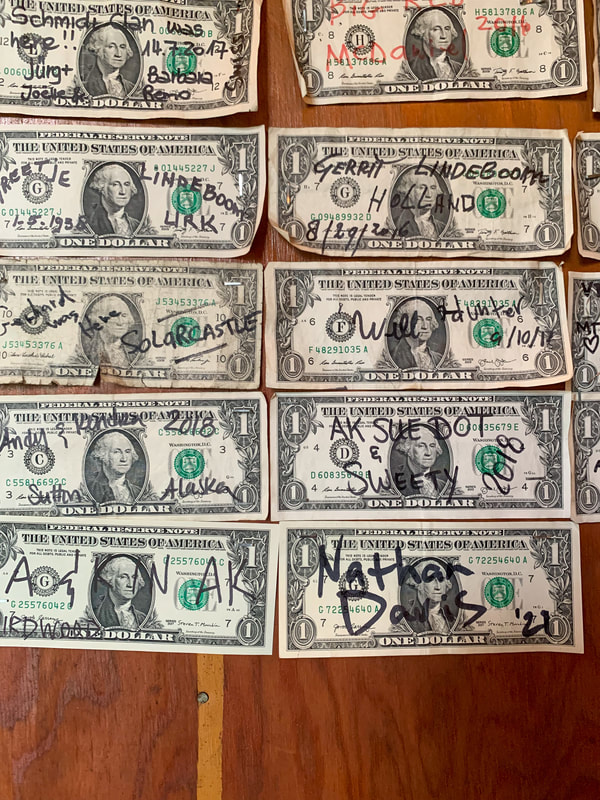
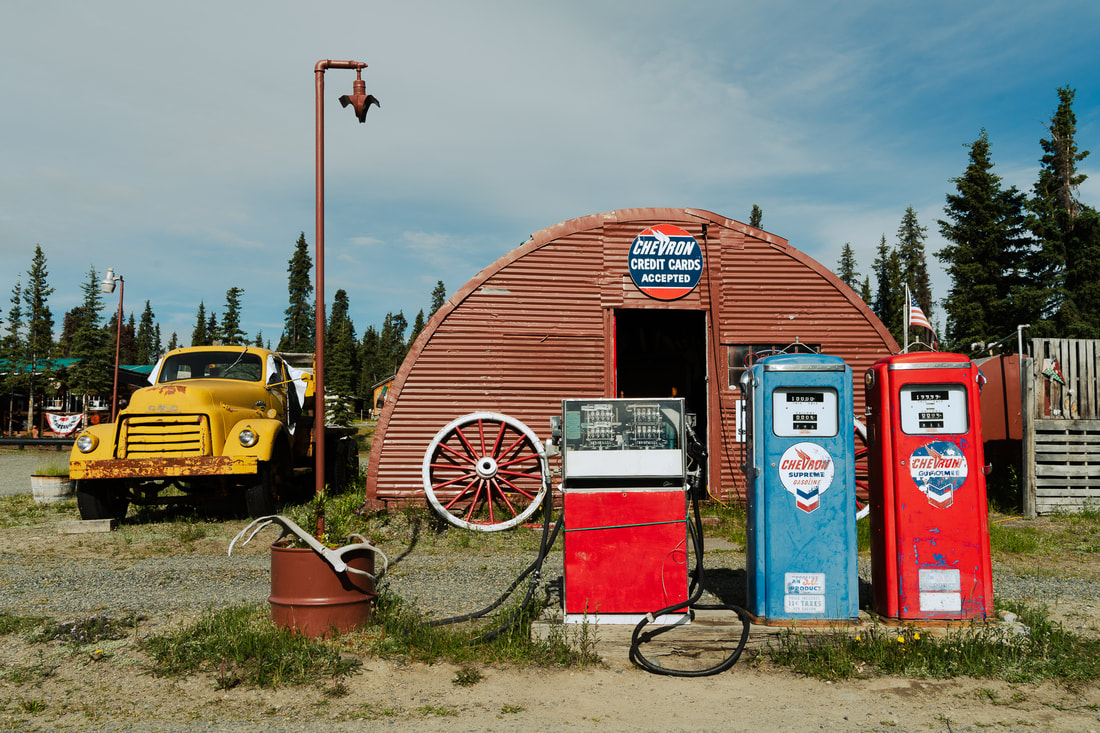
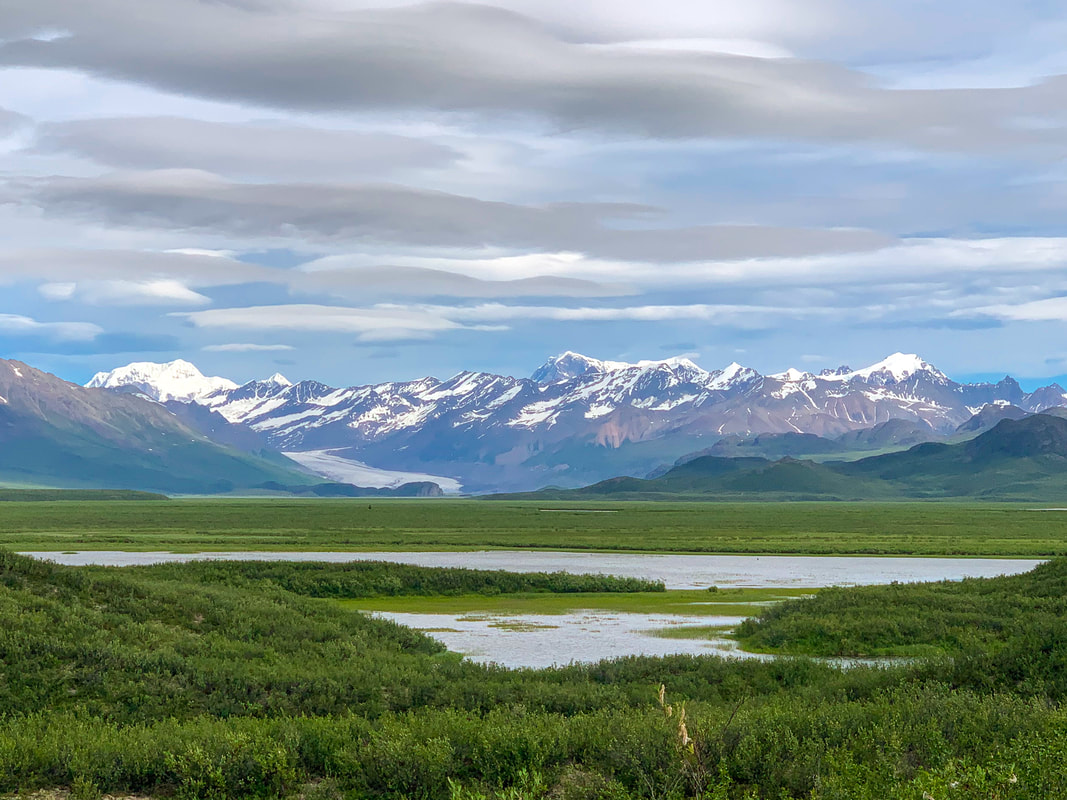
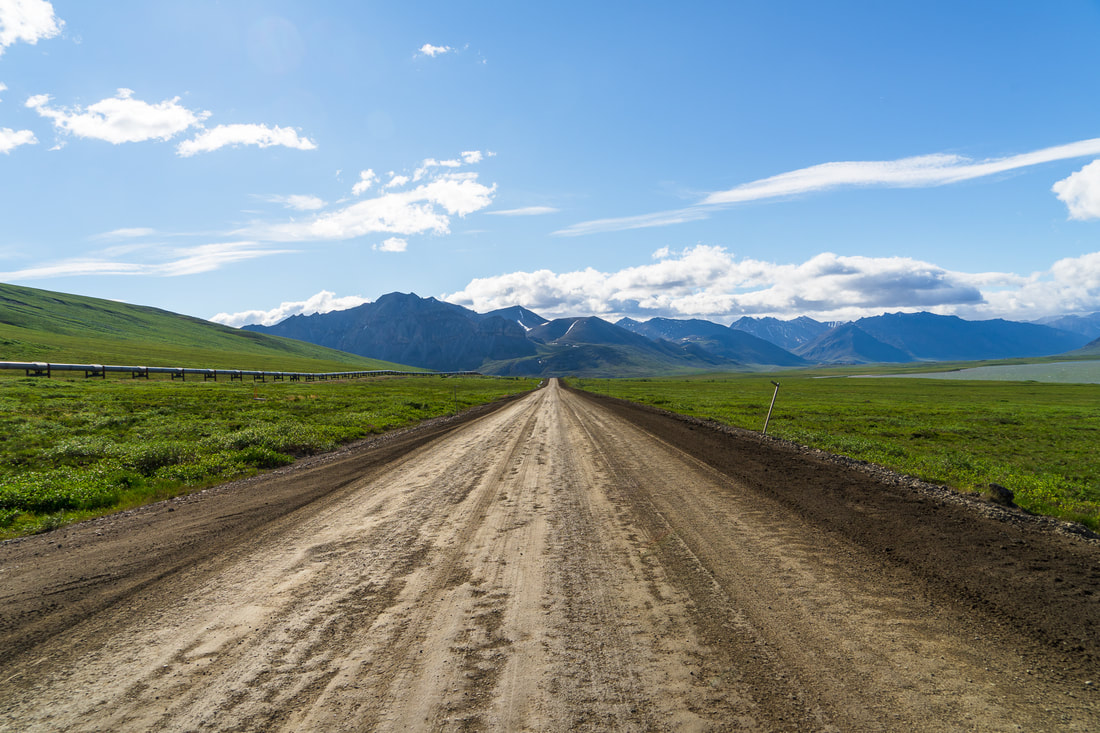
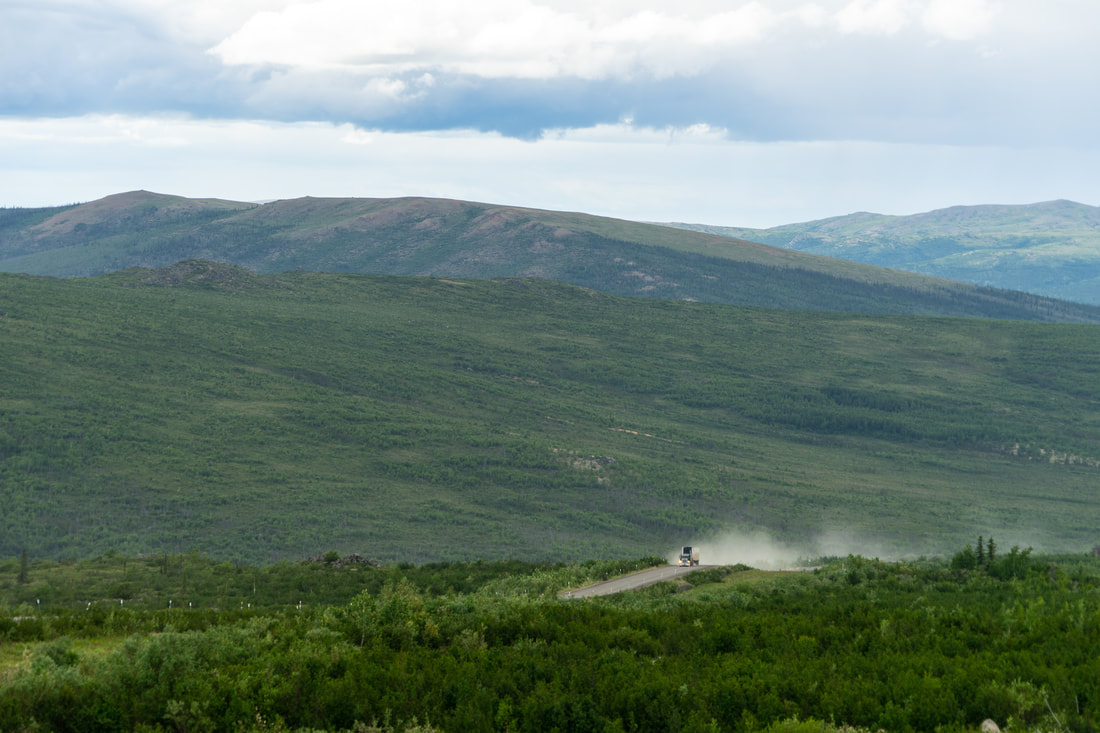
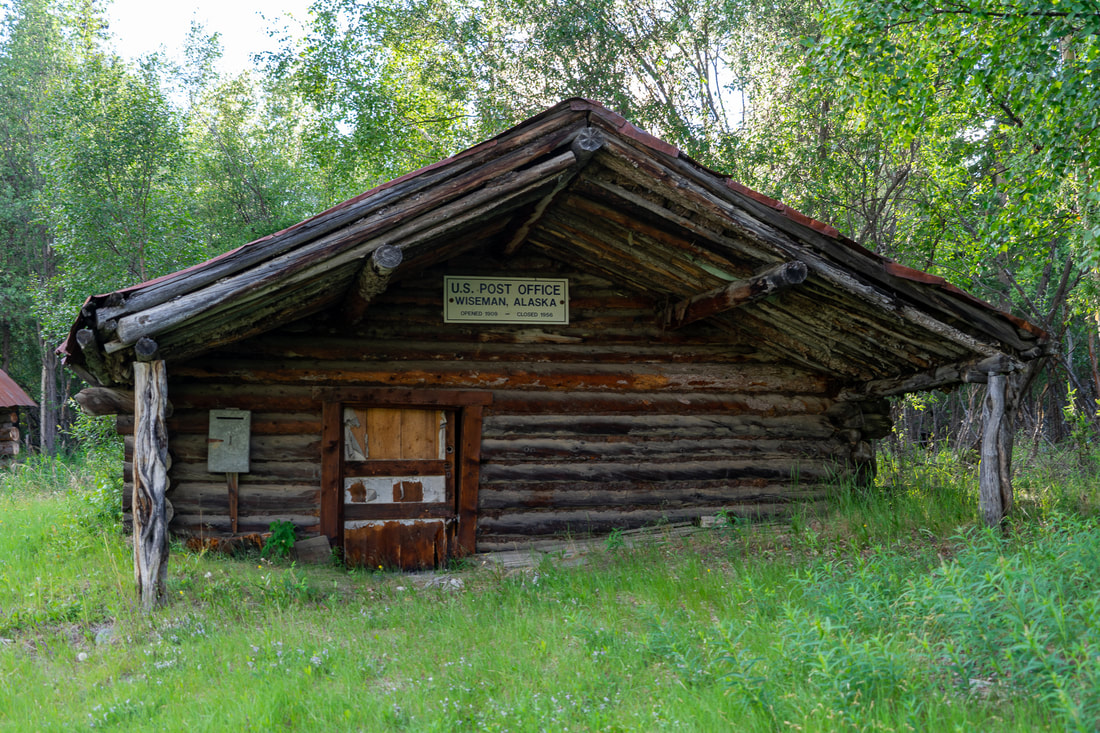
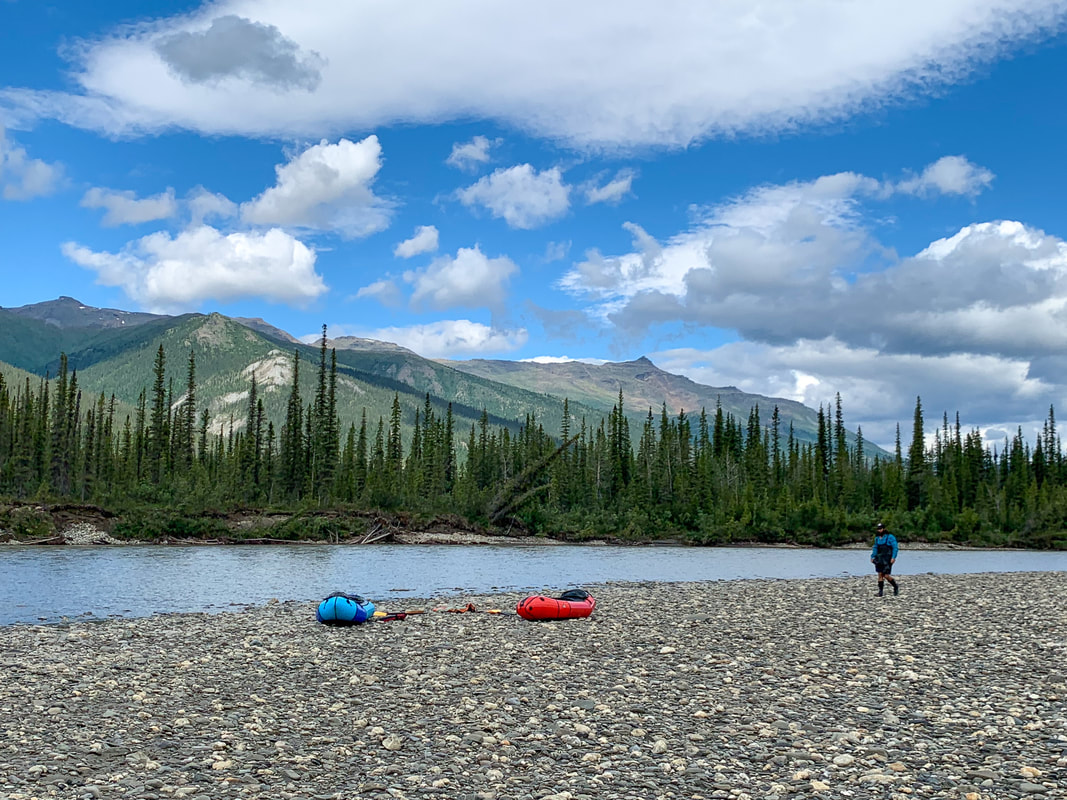
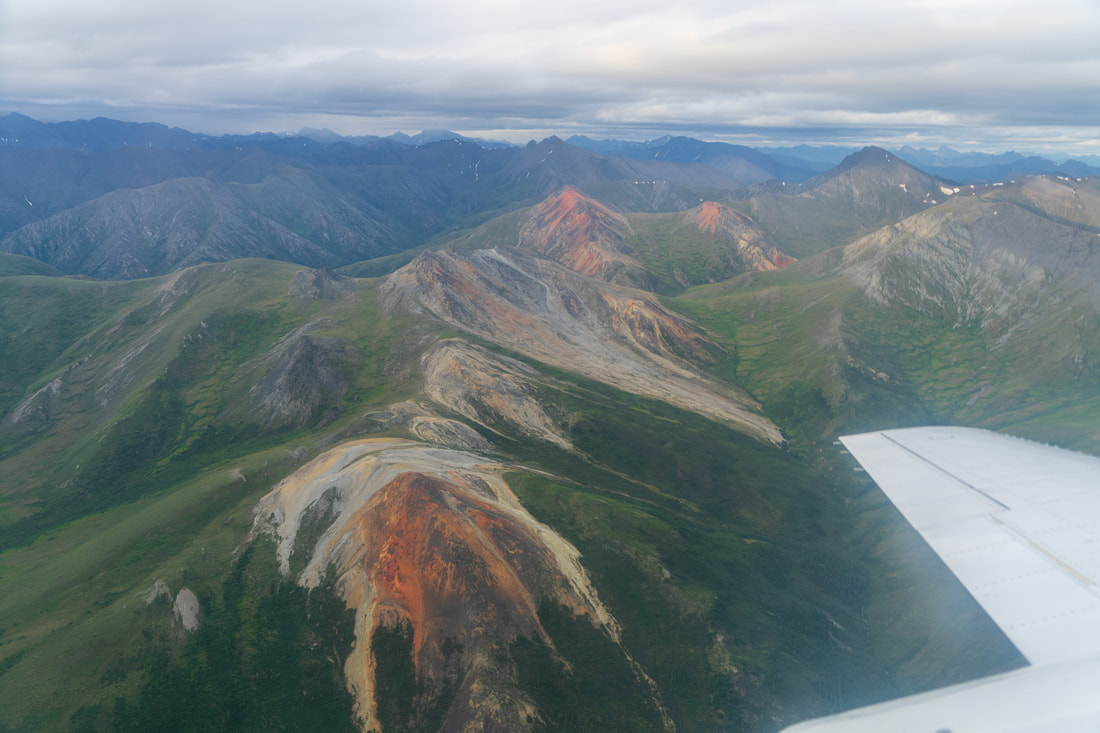
 RSS Feed
RSS Feed